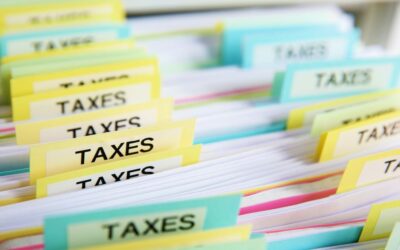In this article:

If you’re self-employed and looking to get a home loan, don’t let anyone tell you that there’s no way. Contrary to popular belief, being self-employed doesn’t mean you have to settle for a higher interest rate home loan. The most significant difference between a self-employed borrower and salaried person applying for a home loan, is the difficulty a lender or a bank has in assessing the borrower’s ability to afford the mortgage.
However, like with any other applicant applying for a mortgage, if you’re able to prove your income, then the bank will assess your application similarly – regardless of your employment status (like small business owner, contractor or sole trader).
The most common problem for self-employed borrowers is a lack of documents that lenders can use to assess your income, like not having a history of tax returns. This is where options like alternative document loans come into play, for those who can’t provide financial statements or tax returns. There are caveats with things like alt-doc loans as the lender faces an increased risk with this type of loan. As a borrower, these alternative loan options are more likely to have higher interest rates and substantial deposit requirements.
There are challenges if you’re a self-employed borrower, but there are steps you can take to prove to lenders that you’re capable of servicing your loan repayments. Here’s how:
1. Prepare your documents
It’s the task we all dread, but it’s crucial to a successful loan application. Processing your loan application as a self-employed borrower can take a substantial amount of time and energy, so get a head start by preparing all the required documentation in advance! Set time aside and organise the following:
- The past two-years income tax returns.
- Bank statements.
- GST and ABN registration.
- 100 points of identification.
- Understand the approach your lender is taking and collect all necessary information.
- Clearly understand your business operations, for example, you need to understand your businesses’ revenue, credit and expenses and have the details neatly prepared and ready to share with your lender or broker.
2. Do your taxes
Lenders are concerned with minimising the risk that you won’t be able to meet the repayment obligations. So key to your chances of success are being able to provide your lender with two years of personal and business tax returns, as well as your income tax assessments.
Oh, and don’t forget to pay your taxes.
Unfortunately, small businesses make up the majority of taxpayers with debt. As a result, the Australian Tax Office can now disclose business tax debt information to registered credit reporting bureaus (subject to certain conditions). So there is a potential that any missed tax payments may pop up in your credit report, something that lenders use as a key factor in approving or rejecting your loan application.
3. Prove you can service the loan
Lenders want to see that at the end of the day, when you remove the monthly expenses from your income, you need to have enough money to service your loan. So organise your finances ahead of your application, by building up six months or more of stable income with low expenses. Don’t go on a spending spree right before your loan application.
4. Partner up
If your partner has a stable income and permanent employment status, you may find it more beneficial to apply for your home loan together. You’re more likely to convince a lender of your loan serviceability with a stable income based on your partner’s employment status.
5. Manage your debt
Organising your financials is a non-negotiable when applying for a home loan. With the complexities of the current lending environment, a self-employed professional’s living expenses are subject to a lot more scrutiny compared to a salaried borrower. Keep a tab on your expenses and credit card spending.
Reducing your consumer debt (such as personal loans and credit cards) will have a positive impact on your cash flow and potentially improve your credit score.
6. Persevere and don’t just gravitate to an alternative document loan
If you’ve just become self-employed, applying for a home loan right away might not be the best idea. Generally, lenders will want to see that you’re successfully employed yourself for at least two years. This is why it’s so important to have organised business records. We listed the type of business records a lender will be looking for above, so get on top of your documentation from the outset!
If you’re determined to apply for a home loan with minimal financial records, a low documentation loan might be right for you, but be careful, as they generally carry a higher interest rate. If this is something you are interested in, make sure you seek professional advice, because with the right expertise and guidance, as a self-employed borrower, you still may be able to secure a regular loan.
7. Find lenders who work for you
There are many specialised lenders willing to consider a loan application based on your individual circumstances. A strong loan application with the right lender can lead to your success, so use our expertise to help you pull together a robust loan application.



